The War on Democracy is a film of genre War directed by John Pilger released in USA on 15 june 2007 with John Pilger
The War on Democracy (2007)
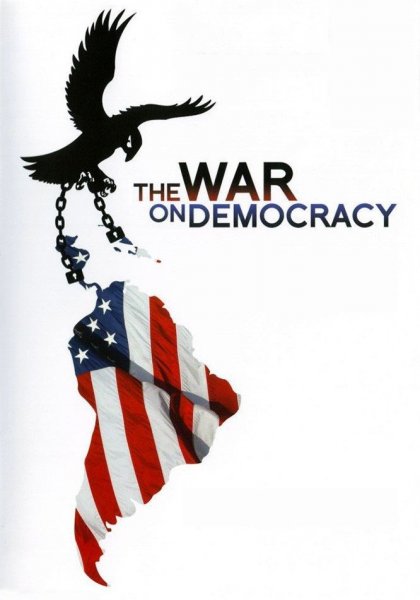
If you like this film, let us know!
- Infos
- Casting
- Technical infos
- Photos
- Videos
- Film quotes
- Characters
- Music
- Awards
Released in USA 15 june 2007
Length 1h36
Directed by John Pilger
Themes Seafaring films, Transport films, Documentary films about law, Documentary films about historical events, Documentary films about politics, Political films, Films about Latin American military dictatorships
Rating80%










The War on Democracy is a 2007 documentary film directed by the British filmmakers Christopher Martin and John Pilger, who also wrote the narration. Focusing on the political states of nations in Latin America, the film criticizes both the United States' intervention in foreign countries' domestic politics and its "War on Terrorism". The film was first released in the United Kingdom on June 15, 2007.
Actors
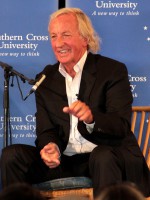
John Pilger
(Self)
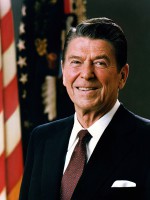
Ronald Reagan
(Self (Archive Footage))
Comments
Leave comment :
Suggestions of similar film to The War on Democracy
There are 11 films with the same actors, 8 films with the same director, 16365 with the same cinematographic genres (including 116 with exactly the same 3 genres than The War on Democracy), 14217 films with the same themes (including 8 films with the same 7 themes than The War on Democracy), to have finally 70 suggestions of similar films.If you liked The War on Democracy, you will probably like those similar films :
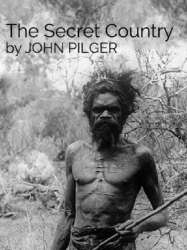 , 53minutes
, 53minutesDirected by John Pilger
Genres Documentary, Historical
Themes Seafaring films, Transport films, Documentary films about law
Actors John Pilger
Rating74%





The Secret Country: The First Australians Fight Back shows that when British colonists first arrived in Australia, they saw Aboriginal Australians as having no proprietorial rights to their land because they didn't cultivate it. As a result of this, no treaty was ever signed. Aboriginal Australians had no rights under British colonial rule and much of their resistance to British colonisation wasn't recorded. John Pilger aims to document some of the historical struggles of Aboriginal people as they were driven from their lands and he follows some of the major events relating to Aboriginal rights throughout the 20th century.
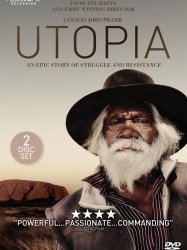
Utopia (2013)
, 1h50Directed by John Pilger
Genres Documentary
Themes Seafaring films, Transport films, Documentary films about law, Documentary films about war, Documentary films about historical events, Political films
Actors John Pilger
Rating76%





The film begins with Pilger's journey to Utopia to observe the changes that have occurred in Aboriginal Australia between 1985, when he featured the poverty in the documentary The Secret Country and the time of filming, 2013. After almost three decades, Pilger discovers that Aboriginal families are still living in extremely overcrowded and poorly sanitized asbestos shacks, and are plagued by easily curable diseases. The Secretary General of Amnesty International, Salil Shetty, who happens to be in Utopia at the same time as Pilger, ponders why one of the world's richest countries cannot solve the problem of Aboriginal poverty and states that the inequity and injustice could be fixed if the will to do so existed. The film goes on to explore some of the issues currently afflicting Australia such as; failed health policies, Aboriginal deaths in police custody, mining companies failing to share the wealth they have acquired with the first Australians and the disputed allegations made by the media and government that there were pedophile rings, petrol warlords and sex slaves in Aboriginal communities and the resulting 2007 intervention. The film also features a visit to Rottnest Island, Western Australia, where an area that was used as a prison for Aboriginal people until 1931, has now been converted into a luxury hotel where tourists are not even informed of the island's brutal history.

Apartheid Did Not Die (1998)
, 51minutesDirected by John Pilger
Genres Documentary
Themes Films set in Africa, Films about racism, Documentary films about racism, Documentary films about law, Documentaire sur une personnalité, Documentary films about politics, Political films
Actors John Pilger
Rating68%






Stealing a Nation (2004)
, 56minutesDirected by John Pilger
Genres Documentary
Themes Documentary films about law, Documentary films about politics, Political films
Actors John Pilger
Rating82%





In the 1960s and 70s, British governments, conspiring with American officials, tricked into leaving, then expelled the entire population of the Chagos islands in the Indian Ocean. The aim was to give the principal island of this Crown Colony, Diego Garcia, to the Americans who wanted it as a major military base. Indeed, from Diego Garcia US planes have since bombed Afghanistan and Iraq. The story is told by islanders who were dumped in the slums of Mauritius and in the words of the British officials who left a 'paper trail' of what the International Criminal Court now describes as 'a crime against humanity'.

The New Rulers of the World (2001)
, 1h5Directed by John Pilger
Origin United-kingdom
Genres Documentary
Themes Documentary films about politics, Political films
Actors John Pilger
Rating77%





John Pilger explores the impact of globalisation, taking Indonesia as his prime example, a country that the World Bank described as a "model pupil" until its 'globalised' economy collapsed in 1998. Under scrutiny are the increasingly powerful multinationals and the institutions that back them, notably the IMF and The World Bank.
 , 1h14
, 1h14Directed by John Pilger
Origin United-kingdom
Genres Documentary
Themes Documentary films about politics, Political films
Actors John Pilger
Rating78%





John Pilger and Alan Lowery traveled to Iraq with Denis Halliday, a former assistant secretary-general of the United Nations who resigned over what he called the "immoral policy" of economic sanctions. There they expected to find a suffering nation held hostage to the compliance of a dictator, Saddam Hussein. What they found was a country being slowly strangled by a draconian U.S./U.K. blockade.
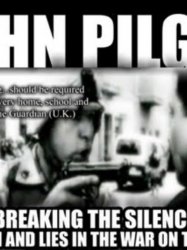 , 52minutes
, 52minutesDirected by John Pilger
Genres Documentary
Themes Documentary films about war, Documentary films about historical events, Political films
Actors John Pilger
Rating78%





The documentary attempts to contrast the proclaimed aims of the War on Terror with, what Pilger sees, as the humanitarian failures in countries such as Afghanistan and Iraq. It asserts that the Afghan mujahideen and Afghan Arabs including Osama bin Laden, from which later both the Taliban and Al Qaeda were created, received support from the United States and by Britain's MI6. Pilger alleges that President Jimmy Carter authorised a five-hundred million dollar programme to help set up the native Afghan mujahideen, starting as early as six months prior to the Soviet invasion into Afghanistan.

The War You Don't See (2010)
, 1h37Directed by John Pilger
Origin United-kingdom
Genres Documentary
Themes Documentary films about war, Documentary films about historical events, Political films
Actors John Pilger
Rating83%





The film begins with footage of an unreported July 12, 2007 Baghdad airstrike and black and white stills of the victims of the U.S. Occupation of Iraq. In his opening narration Pilger quotes World War I British Prime Minister David Lloyd George’s comment to Guardian editor C. P. Scott that, “If the people really knew the truth, the war would be stopped tomorrow.” He goes on to state that this film will draw on his own experience as a war correspondent to question the role of the media in conflicts such as Iraq and Afghanistan.

Welcome to Australia (1999)
, 50minutesGenres Documentary
Themes Seafaring films, Sports films, Transport films, Documentary films about sports, Documentary films about law
Actors John Pilger
Rating75%





In the build-up to the Sydney 2000 Summer Olympic Games, Pilger finds that the elaborate preparations for the Olympics are overshadowing the reality of many Australia's Aboriginal citizens, who he argues continue to remain excluded, impoverished and mistreated in Australia. The film uses sport as a mechanism to draw attention to and tell the story of the injustices endured by Aboriginal Australians while also arguing that Aboriginal Australians could have had a much more significant impact on Australian sport if they had not been deliberately prevented from doing so.

Zeitgeist (2007)
, 2h2Directed by Peter Joseph
Origin USA
Genres War, Documentary, Historical
Themes Films based on the September 11 attacks, La mondialisation, Films about religion, Films about terrorism, Transport films, Aviation films, Documentaire sur l'altermondialisme, Documentary films about law, Documentary films about war, Documentary films about historical events, Documentary films about politics, Documentary films about religion, Documentary films about technology, Documentary films about terrorism, Political films, Films based on the Bible, Films about Islam, Dans un avion, Portrayals of Jesus in film, Films about hijackings
Actors George Carlin
Rating80%





The film starts with animated visualizations, film segments and stock footage, a cartoon and audio quotes about spirituality by Chögyam Trungpa Rinpoche, then shots of war, explosions, and the September 11 attacks. Then the film's title screen is given. The introduction ends with a portion of a George Carlin monologue on religion accompanied by an animated cartoon. The rest of the film is in three parts with narration by Peter Joseph.
 Connection
Connection